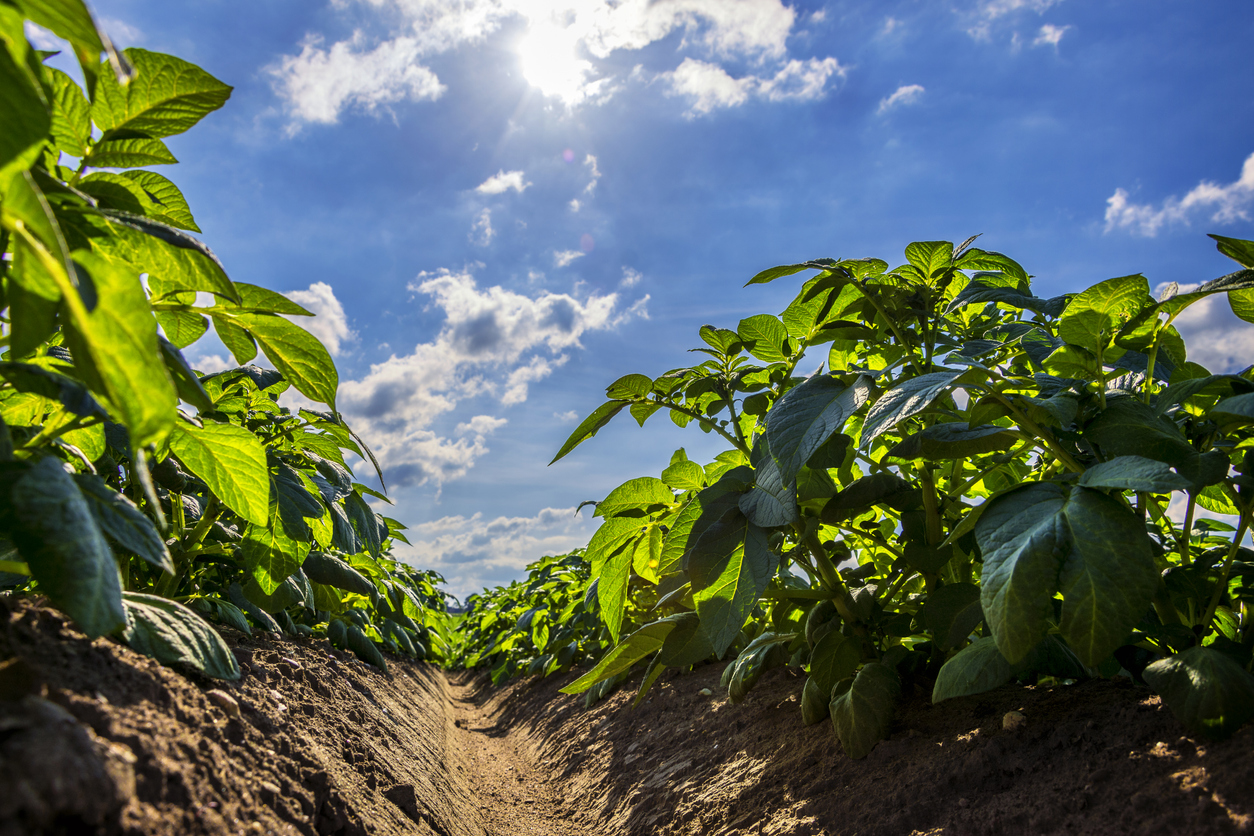
Experts Develop Heatwave-tolerant Potatoes
December 11, 2024| |
A study published in Global Change Biology reports about genetically engineered potato plants that can grow 30% larger tubers under heatwave conditions without affecting the nutritional quality of the tubers. The research was conducted by a team of experts led by Katherine Meacham-Hensold of the University of Illinois in the US.
“If we are going to meet the need for food in regions most at risk from reduced yields due to global warming, we need to produce crops that can withstand more frequent and intense heatwave events…The 30% increase in tuber mass observed in our field trials shows the promise of improving photosynthesis to enable climate-ready crops,” said Meacham-Hensold.
The research team aimed at altering potato plants' photorespiration, which has been pinpointed in previous studies to be significantly impacted by high temperatures, leading to reduced yields in other crops such as soybean, rice, and vegetables. Photorespiration, also called oxidative photosynthethic carbon cycle, is a plant metabolism process wherein the enzyme RuBisCo allows fixation of carbon dioxide to react with oxygen rather than carbon dioxide. This process depletes a lot of energy, thus affecting the plant's ability to produce its own food. The researchers engineered the plants to bypass the original photorespiratory pathway and produce bigger tubers.
Read more from the articles in Cosmos Magazine and Global Change Biology.| |
You might also like:
- Potato GM Events
- MSU Breeder Genetically Engineers Healthier Potato for Long-term Storage
- Researchers Pinpoint Potato Gene for Root Growth and Drought Tolerance
Biotech Updates is a weekly newsletter of ISAAA, a not-for-profit organization. It is distributed for free to over 22,000 subscribers worldwide to inform them about the key developments in biosciences, especially in biotechnology. Your support will help us in our mission to feed the world with knowledge. You can help by donating as little as $10.
-
See more articles:
-
Plant
- DA BPO Names the Awardees of the 9th Filipino Faces of Biotechnology
- US Court Overturns USDA Ruling on Genetically Engineered Plants
- Kenya’s National Biosafety Authority Opens Public Comments on the Proposed Environmental and Market Release of Bt Maize
- Experts Develop Heatwave-tolerant Potatoes
-
Animal
- ISAAA Webinar Explores the Science and Application of Gene Drives
-
Food
- Japan Remains a Key GM Product Import Market
-
Environment
- Research Reveals Warming Nighttime Temperatures Reduce Rice Quality in East Asia
- "Booster" Gene Game-Changer for Plant-Based Jet Fuel and Food Production
-
Read the latest: - Biotech Updates (December 10, 2025)
- Gene Editing Supplement (November 26, 2025)
- Gene Drive Supplement (February 22, 2023)
-
Subscribe to BU: - Share
- Tweet

